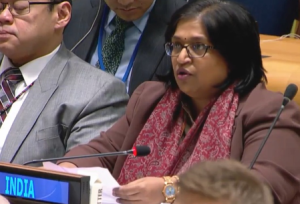Getting To Broadband For All

Ryan asked me what I thought about the news that the FCC is going to expand the Lifeline program, which provides a $9.25/month subsidy for phone (wired and wireless) to the poor, to include broadband.
In the short term it makes a ton of sense to me to say “you can use your $9.25/month subsidy to get broadband in addition to cell service” but I’m wondering if there isn’t more systemic and sustainable way to deal with the fact that 30% of US citizens still don’t have broadband at home.
The Lifeline program costs $1.7bn and is paid for by telecom service providers. It currently services 12mm households in the US.
There are roughly 330mm residents of the US, so approximately 100mm of them do not have broadband at home.
The Lifeline program alone is not going to solve this problem.
Part of the problem is that broadband is not available in certain rural locations. We have a home in Utah where there is no cable service and the best Internet we can get is 1.5 megabit DSL. And that connection is flaky at best. The minimum speed to qualify for “broadband” designation is currently 25 megabit and it is super hard to get that out of copper. This is not a new problem. There was a similar problem getting phone service out to rural locations in the last century.
Part of the problem is that broadband is too expensive for people living off very low incomes or no income. Time Warner Cable provides 15down/1up for $35/month. And that isn’t even technically “broadband”.
And some of those 100mm that don’t have broadband at home don’t want it. They either don’t have Internet, they have dial-up, or they use their phones when they want the Internet.
But if we look forward twenty or thirty years, the percentage of people who are going to want to live without broadband at home will likely decline to near zero. So coming up with some way to address this issue is an important policy issue and one that I’ve thought a lot about.
It seems to me that wireless is the way forward. It avoids the cost of running cable to every home and it also recognizes that people need broadband wherever they are.
I believe it is time for the US to rethink our wireless strategy. Currently we auction off spectrum to the highest bidder, raising tens of billions for the US Treasury, and then tax the winners a small portion of their revenue to provide a small benefit ($9.25/month) that doesn’t even come close to getting us to universal access. If you think of the annual cost of Lifeline ($1.7bn per year) over a decade, that is in the ballpark of what a wireless carrier will pay for a big band of licensed spectrum.
What if, instead of auctioning off spectrum to the highest bidder, we took some of our best spectrum and made it available to everyone to innovate on, like the Wifi spectrum is? And what if we provided tax subsidies to entrepreneurs who want to build out rural broadband companies using that unlicensed spectrum? And what if we provided free real estate for cell towers on our public housing projects, our school buildings, and our libraries in return for providing open and public networks in and around those tower locations?
We need to change the basis of competition in the wireless broadband industry if we want to get to universal access. We can’t keep maintaining a small oligopoly in wireless in this country and think that somehow we are magically going to get to universal access. We must create policy frameworks that allow thousands of new wireless telecommunications companies to get started in the coming years and we need to create economic incentives for these new entrants to build out networks where it is less attractive to do so. That will have the additional result of causing the incumbents to decide to compete in these less attractive areas as well. We’ve seen that with Google Fiber and some muni fibers efforts already.
I don’t buy into the conservative argument that we cannot afford to provide benefits to those who can’t afford them. I don’t buy into the liberal argument that we must tax and spend our way into solving these problems. I buy into the capitalist argument that if we create the right economic structures and incentives, entrepreneurs can and will solve these problems in a sustainable way. And I think that is the answer with universal broadband.




.png)





